Filter by
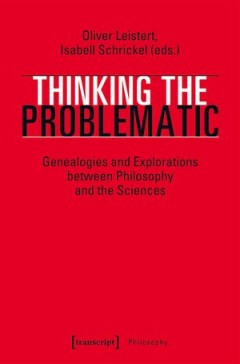
Thinking the Problematic
The notion of »the problematic« has changed its meaning within the history of power and knowledge since the early 20th century, leading up to today's performative, neocybernetic fascination with generalized management ideas and technocratic models of science. This book explores central scenes, conceptual elaborations, and practical affiliations of what historically has been called »the probl…
- Edition
- Edisi 1
- ISBN/ISSN
- 9783839446409
- Collation
- -
- Series Title
- -
- Call Number
- -
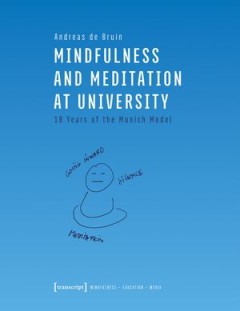
Mindfulness and Meditation at University
Why should mindfulness and meditation be taught at universities? What impact could the establishment of such programs have on students and on the education system itself? Andreas de Bruin showcases the remarkable results of the first ten years of the Munich Model »Mindfulness and Meditation in a University Context« - a program started in the year 2010 in which 2000 students have already parti…
- Edition
- Edisi 1
- ISBN/ISSN
- 9783839456965
- Collation
- -
- Series Title
- -
- Call Number
- -
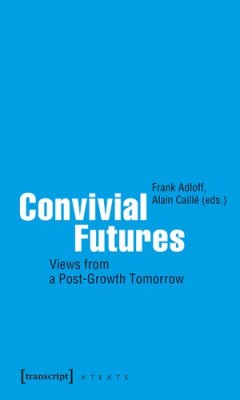
Convivial Futures
What steps are needed to make life better and more convivial? The Second Convivialist Manifesto (2020) has presented a short diagnosis of the current crises and sketches of a possible and desirable future. It has been a necessary work of theoretical synthesis, but preserving a viable world also requires passion. It is thus urgent to show what people would gain from a shift to a post-neoliberal …
- Edition
- -
- ISBN/ISSN
- 9783732856640
- Collation
- -
- Series Title
- -
- Call Number
- -

The Voices and Rooms of European Bioethics
This book reflects on the many contributions made in and to European bioethics to date, in various locations, and from various disciplinary perspectives. In so doing, the book advances understanding of the academic and social status of European bioethics as it is being supported and practiced by various disciplines such as philosophy, law, medicine, and the social sciences, applied to a wide ra…
- Edition
- Edisi 1
- ISBN/ISSN
- 9781317804574
- Collation
- -
- Series Title
- -
- Call Number
- -
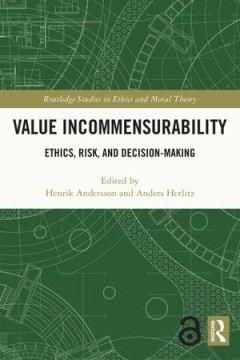
Value Incommensurability
Incommensurability is the impossibility to determine how two options relate to each other in terms of conventional comparative relations. This book features new research on incommensurability from philosophers who have shaped the field into what it is today, including John Broome, Ruth Chang and Wlodek Rabinowicz.The book covers four aspects relating to incommensurability. In the first part, th…
- Edition
- Edisi 1
- ISBN/ISSN
- 9781000526981
- Collation
- -
- Series Title
- -
- Call Number
- -
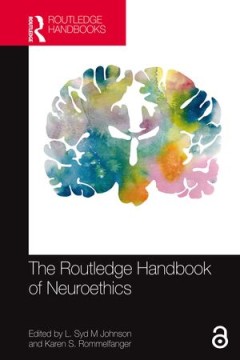
The Routledge Handbook of Neuroethics
The Routledge Handbook of Neuroethics offers the reader an informed view of how the brain sciences are being used to approach, understand, and reinvigorate traditional philosophical questions, as well as how those questions, with the grounding influence of neuroscience, are being revisited beyond clinical and research domains. It also examines how contemporary neuroscience research might ultima…
- Edition
- Edisi 1
- ISBN/ISSN
- 9781317483526
- Collation
- -
- Series Title
- -
- Call Number
- -
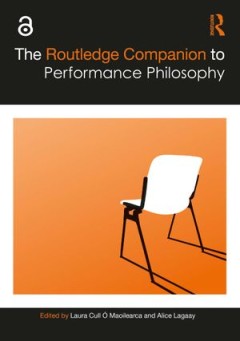
The Routledge Companion to Performance Philosophy
The Routledge Companion to Performance Philosophy is a volume of especially commissioned critical essays, conversations, collaborative, creative and performative writing mapping the key contexts, debates, methods, discourses and practices in this developing field. Firstly, the collection offers new insights on the fundamental question of how thinking happens: where, when, how and by whom philos…
- Edition
- Edisi 1
- ISBN/ISSN
- 9781000056891
- Collation
- -
- Series Title
- -
- Call Number
- -

The Routledge Companion to Free Will
Questions concerning free will are intertwined with issues in almost every area of philosophy, from metaphysics to philosophy of mind to moral philosophy, and are also informed by work in different areas of science (principally physics, neuroscience and social psychology). Free will is also a perennial concern of serious thinkers in theology and in non-western traditions. Because free will can …
- Edition
- Edisi 1
- ISBN/ISSN
- 9781317635475
- Collation
- -
- Series Title
- -
- Call Number
- -
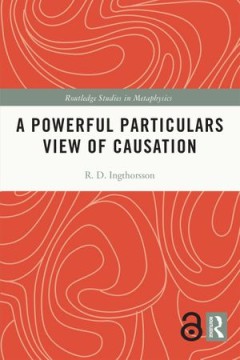
A Powerful Particulars View of Causation
This book critically examines the recent discussions of powers and powers-based accounts of causation. The author then develops an original view of powers-based causation that aims to be compatible with the theories and findings of natural science.Recently, there has been a dramatic revival of realist approaches to properties and causation, which focus on the relevance of Aristotelian metaphysi…
- Edition
- Edisi 1
- ISBN/ISSN
- 9781000360998
- Collation
- -
- Series Title
- -
- Call Number
- -

Pioneering Healthcare Law
This book celebrates Professor Margaret Brazier’s outstanding contribution to the field of healthcare law and bioethics. It examines key aspects developed in Professor Brazier’s agenda-setting body of work, with contributions being provided by leading experts in the field from the UK, Australia, the US and continental Europe. They examine a range of current and future challenges for healthc…
- Edition
- Edisi 1
- ISBN/ISSN
- 9781317506003
- Collation
- -
- Series Title
- -
- Call Number
- -
 Computer Science, Information & General Works
Computer Science, Information & General Works  Philosophy & Psychology
Philosophy & Psychology  Religion
Religion  Social Sciences
Social Sciences  Language
Language  Pure Science
Pure Science  Applied Sciences
Applied Sciences  Art & Recreation
Art & Recreation  Literature
Literature  History & Geography
History & Geography